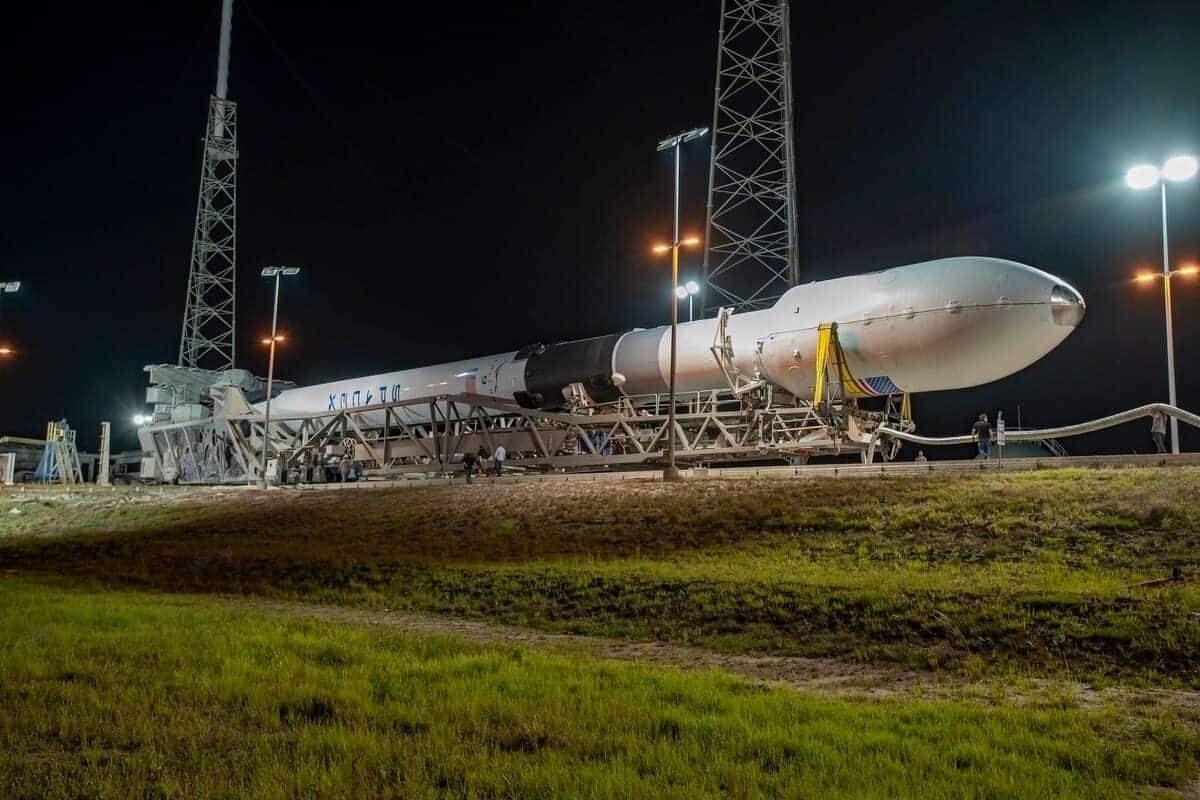Space Force launches third GPS III satellite

Delayed from an April launch date in response to the spread of the novel coronavirus, the third GPS III satellite was launched into orbit June 30 on a SpaceX Falcon 9 rocket from Cape Canaveral, Florida.
In addition to being SpaceX’s first launch with the U.S. Space Force as well as the new service’s third launch since its inception, this event saw the first successful booster recovery during a National Security Space Launch. Following separation, the booster was able to safely land on SpaceX’s “Just Read the Instructions” drone ship, located about 350 nautical miles off the east coast of Florida.
“The NSSL program’s number one priority is to achieve mission success on each and every National Security Space launch,” Col. Robert Bongiovi, launch enterprise director, said in a statement prior to launch. “We also strive to procure affordable launch services that maintain assured access to space for the Nation. Our goal with GPS III SV03 was to maintain our mission assurance record, while exploring unique cost saving opportunities like recovering a booster to deliver the capabilities our warfighters demand.”
As COVID-19 spread throughout the United States in the spring, the Space Force opted to delay the third GPS III launch and develop protocols to protect personnel supporting the launch. Space Force officials have said the delay did not impact the readiness and availability of the GPS constellation to war fighters and only minimally affected cost and schedule.
The new, powerful GPS III satellites are a marked improvement over their predecessors, providing three times more accuracy and up to eight times more anti-jamming power. However, not all of the platform’s suite of advanced capabilities will be available until more of the constellation is in place, its next-generation ground segment is operational and war fighters have the equipment needed to utilize those features.
One example is M-code, a more secure anti-jam GPS signal for military use. With this launch, there is yet another satellite on orbit that will be able to broadcast the M-code signal. But to use that on-orbit capability, the GPS III constellation needs a ground system that is compatible with M-code.
Raytheon is building the $6.2 billion, next-generation operational control system to do just that, but the system is five years behind schedule.
To address the gap, Lockheed Martin was awarded a contract to upgrade the current GPS ground control segment to access some of the GPS III features. One upgrade included in that contract is M-Code Early Use, which will support testing and fielding M-code-ready equipment to war fighters until the special-built GPS III ground system is delivered and operational.
According to Tonya Ladwig, the acting vice president of navigation systems for Lockheed Martin’s Space division, the company installed the M-Code Early Use upgrade to the GPS Operational Control Segment earlier in June, and it is expected to be ready by the end of the year.
According to the Space Force, the third GPS III vehicle will join a constellation of 31 active GPS satellites providing position, navigation and timing data worldwide. Following two launches last year, the first two GPS III satellites were declared ready for use in January and March 2020, respectively.
Photo: The third GPS III satellite is rolled out to Cape Canaveral’s Space Launch Complex-40 launch pad in preparation for its June 30 launch aboard a SpaceX Falcon 9 rocket. (SpaceX)











